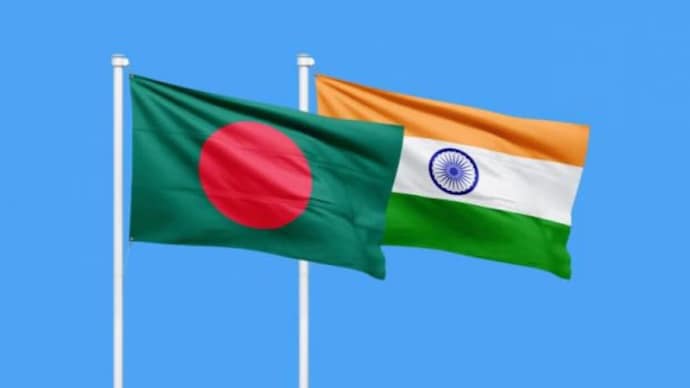Editor’s note: Ibrahim Khalil Ahasan is a Dhaka, Bangladesh based independent columnist and freelance journalist. The article expresses the personal opinion of the author and may not coincide with the view of News.Az.
Bangladesh’s relations with neighboring India are currently strained over a series of issues. Following the fall of Sheikh Hasina’s autocratic government and her subsequent fleeing to India, various provocations and misleading narratives about Bangladesh have surfaced in sections of the Indian media.
Negative comments, critical statements, and exaggerated discussions regarding the political changes in Bangladesh—such as the recent attack on the Bangladesh embassy in Agartala—are being disseminated. Experts emphasize that India must adopt a positive and pragmatic view of these changes, recognizing that all solutions must be achieved through diplomatic dialogue.
The newly formed interim government in Bangladesh faces immense pressure as it embarks on reform efforts amid conspiracies and political turbulence. Reports of undesirable incidents within the country are being covered extensively by both domestic and international media. Unfortunately, some Indian media outlets are distorting these reports, presenting an inaccurate portrayal of Bangladesh that misleads Indian audiences and the global community.
At a recent seminar titled “Bangladesh-India Relations: Expectations, Obstacles, and Future” organized by North South University in Dhaka, the interim government’s Foreign Affairs Advisor, Md. Touhid Hossain, criticized the role of Indian media. He remarked that the current media discourse does little to foster positive relations between the two countries. The Advisor stressed that Bangladesh’s relations with India must be built on reality and mutual respect, particularly in light of the country’s shifting political landscape.
Bangladesh has consistently prioritized friendly diplomatic ties with its neighbors. The Foreign Affairs Advisor underscored this sentiment, stating, “We will not harm others, nor will we allow anyone to harm us. Establishing a national consensus is vital in this regard.” While expressing optimism for the future of bilateral ties, he urged Indian media to adopt a more constructive role in preserving and enhancing relations between the two nations.


Photo: diplomatist
India is Bangladesh’s closest neighbor, a fact that cannot be altered. While friendships may change, geography ensures that neighbors remain constant. The historic relationship between the two countries extends beyond mere trade—it encompasses cooperation in fields such as healthcare, tourism, and education. However, under the previous regime, Bangladesh-India relations faced challenges, with Bangladesh’s national interests often being undermined.
To reset and improve relations, both nations’ leadership must demonstrate goodwill and address lingering issues. These include the Teesta Water Treaty, the growing trade deficit, and persistent border incidents—three key unresolved matters. Addressing these concerns swiftly would significantly enhance mutual trust and cooperation.
Bangladesh aspires to build an equitable and multidimensional relationship with India. Both governments must remain vigilant to ensure that bilateral ties do not deteriorate due to a lack of goodwill. While governments come and go, the people of both nations endure, and it is their legitimate representatives who must sustain these relationships on the basis of equality and shared interests.
The current situation has sparked provocative and exaggerated statements from various Indian quarters. Attacks on Bangladesh’s diplomatic establishments and violations of diplomatic norms are particularly concerning. Bangladesh has rightly protested such incidents, calling on India to adhere to the Vienna Convention. The Indian Ministry of External Affairs has since expressed regret. However, for meaningful progress, India must accept the evolving reality in Bangladesh and refrain from inflammatory rhetoric.
The recent mass uprising in Bangladesh, which led to the resignation and departure of Sheikh Hasina, is a reflection of long-standing public dissatisfaction. For 15 years, Sheikh Hasina ruled Bangladesh without electoral legitimacy, operating with a heavy-handed approach characterized by rampant corruption and the systematic suppression of voting rights. Much of this was enabled by India’s tacit support, which blinded it to the growing anger among the Bangladeshi populace.
India must now recognize that the political landscape in Bangladesh has fundamentally shifted. The times have changed, and Bangladesh’s importance in South Asia has grown significantly. No longer viewed as a subordinate player, Bangladesh has emerged as the second most significant country in the region after India. This is equally acknowledged by China and Western powers, who now engage directly with Bangladesh rather than viewing it through an Indian lens.
For its own strategic interests, India must immediately recalibrate its approach towards Bangladesh. A stubborn, outdated policy will serve neither country. Instead, embracing the new political reality in Bangladesh will allow India to rebuild trust and secure its role as a valued partner in South Asia.
(If you possess specialized knowledge and wish to contribute, please reach out to us at opinions@news.az).
News.Az

